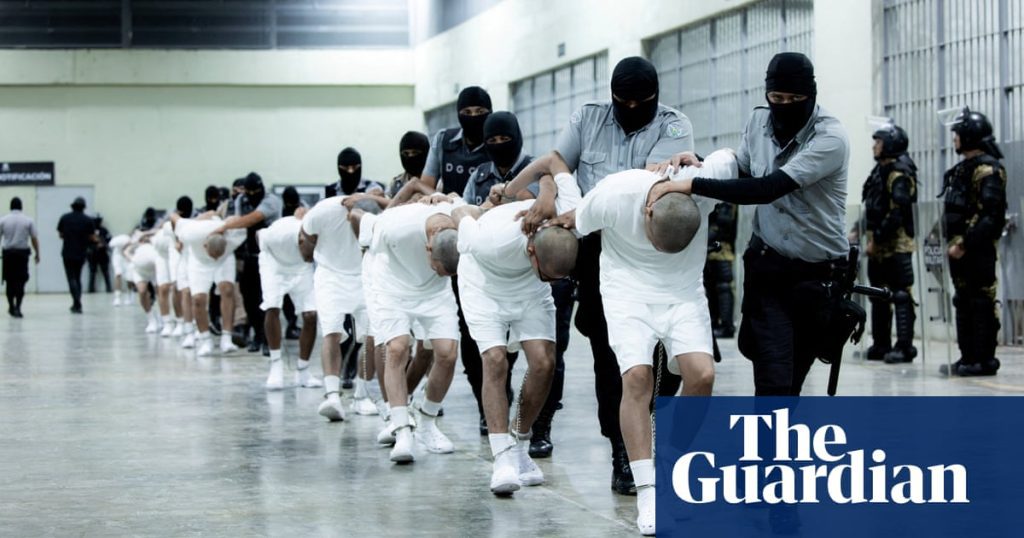The United States has transferred hundreds of primarily Venezuelan migrants to El Salvador, where they are being detained without trial in a controversial mega-prison known for its severe conditions. This facility has gained approval from strict law-and-order politicians both domestically and internationally, while drawing criticism from human rights advocates.
What is the Cecot prison?
In February 2023, El Salvador inaugurated what it claims is the largest prison in Latin America, designed to accommodate 40,000 inmates. Spanning 23 hectares, the prison is located in a remote area 70 kilometers east of San Salvador.
President Bukele announced in November that the prison was developed and equipped at a cost of $115 million.
This facility is a key component of Bukele’s broadly supported strict security policy, which has led to a significant decrease in homicide rates.
Declaring himself the “coolest dictator” in the world, Bukele initiated a state of emergency in March 2022 that remains active, resulting in over 84,000 arrests, including individuals linked to the Mara Salvatrucha gang (MS-13) and its rival, Barrio 18.
While government reports indicated a prison population of 14,500 inmates in August 2024, a spokesperson indicated in March 2025 that this number was outdated, and a new figure was not provided for security reasons.
Why are migrants held at the prison?
During a visit from U.S. Secretary of State Marco Rubio in February, Salvadoran President Nayib Bukele proposed housing criminals deported from the U.S. in the mega-prison.
On March 15, the Trump administration deported 261 individuals to El Salvador, of which 137 were justified under the Alien Enemies Act of 1798, identified as members of the Venezuelan gang Tren de Aragua with limited details provided.
According to a U.S. official in a court statement, many of these 137 individuals had no prior convictions in the U.S. but were still considered a significant threat.
These individuals, along with an additional 101 Venezuelans, are being detained in Cecot for a renewable one-year term, Bukele stated. The U.S. government compensated El Salvador approximately $6 million for accepting the deportees, according to the White House.
The remaining 23 deportees consisted of members of Salvadoran gangs, the White House confirmed.
What is it like in the prison?
Images from inside the facility depict inmates packed closely together, with shaved heads and dressed only in shorts.
Cecot lacks outdoor recreational areas and prohibits family visits.
A September 2024 report by the Inter-American Commission on Human Rights raised alarms about overcrowding, reporting that inmates had an average of just 0.60 square meters (6.45 square feet) of space, falling short of international norms.
Human rights organizations have reported over 6,000 violations since the state of emergency declaration in 2022, including arbitrary detentions, torture, and 366 deaths in custody, allegations the government rebuffs.
Why is the prison controversial?
Cecot has garnered worldwide attention, both favorable and unfavorable. Argentine Security Minister Patricia Bullrich praised it in a June 2024 post, asserting, “This is the way. Tough on criminals.”
In the following month, a U.S. Republican delegation, led by former Representative Matt Gaetz, toured the facility.
Videos from YouTube personalities visiting the prison have attracted millions of views, showcasing the severe conditions within.
Numerous human rights organizations have condemned El Salvador’s prison system, particularly Cecot, citing alleged violations such as torture, inmate deaths, and mass trials.
In August, Bukele stated that “gang members will spend their entire lives in prison,” while Justice Minister Gustavo Villatoro promised in 2023 that no one entering Cecot would “ever leave on foot.”



